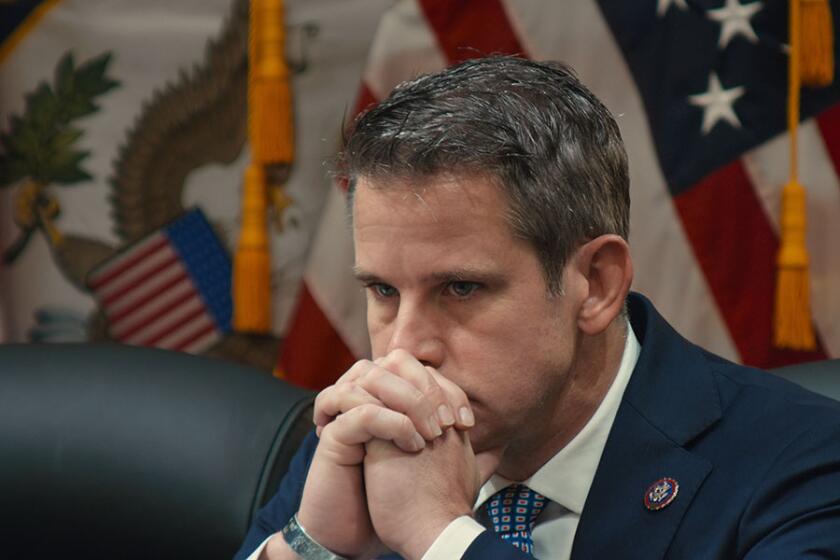Chaplin’s big-top tension, on and off the screen
Though the classic 1928 Charlie Chaplin comedy, “The Circus,” screening Friday at the Samuel Goldwyn Theater in Beverly Hills, is filled with wonderful sight gags and pathos, the film’s production was a three-ring circus of delays, strife and angst.
“It is so surrounded in misfortune,” says the Little Tramp’s daughter, Geraldine Chaplin. Her father started the film in 1925 right after the release of “The Gold Rush” but didn’t complete it until 1927. Production was interrupted for nearly a year because of “horrendous divorce” proceedings with his wife, Lita Grey.
“It was an awful divorce,” Chaplin says. “He had to stop the production because she would have taken everything. Then his mother died during the film, and then all the first weeks of the film where he shot all the tightrope stuff -- the rushes came back and they were all scratched and he had to reshoot everything.”
Then the sets burned down. “Fire destroyed everything,” she says. “Then the firemen came and then they destroyed everything that wasn’t destroyed by the fire. Then the American income tax people came and he owed over a million in taxes.”
Chaplin says that the divorce aged her father so much that his face changed radically from the time the film started to when production ended. Reshoots of close-ups scheduled for the end of production had to be canceled because of his appearance.
“He had to dye his hair because his hair went white,” she explains.
Despite all the problems surrounding the filming, his daughter reports that he loved the film. “We used to show it a lot” at home.
As part of the film’s 75th anniversary celebration, the Academy of Motion Picture Arts and Sciences has restored “The Circus,” and the screening Friday marks the premiere of the new print. It also marks the first time in Los Angeles that the score Chaplin wrote for “The Circus” in 1967 will be played live. The Robert Israel Orchestra, a 25-piece ensemble, will provide the musical accompaniment with strings, wind, brass and percussion.
In “The Circus,” Chaplin’s Little Tramp joins the big top and falls in love with a beautiful performer (Merna Kennedy). Chaplin received a special Oscar for his “versatility and genius” at the first Academy Awards for writing, directing and starring in the film.
When “The Circus” was released in 1928, there was a compilation score that went out to theaters in large towns.
“He worked with a man named Arthur Kay to compile and arrange a score from source materials, music from the day,” Israel says. “This apparently is what went out with the picture to some theaters. In the 1920s, because a film had a score on paper it didn’t ensure it was played at the theater. You could go to a small town and your pianist probably couldn’t read music very well and just simply improvised. Only the large theaters would probably have the score.”
With 1931’s “City Lights,” Chaplin began writing the scores for his films. One of the reasons “The Circus” doesn’t have the fame of “City Lights,” “Modern Times,” “The Great Dictator,” “Limelight” and “The Gold Rush,” which he reissued in the early 1940s with music and narration, was because it didn’t have a score. So in 1967 at the age of 78, he wrote a score, and in 1969 he re-released the film.
Israel says that Chaplin’s scores have a “complete uniqueness” that are influenced by Beethoven, Mozart and Bach, as well as his roots in English music halls.
“Chaplin may not have been the composer in a traditional sense in that he was musically illiterate,” Israel says. “But that of course did not stop him from being able to communicate with musicians what he wanted and how he wanted it and to ultimately realize it.
“Of course you will have arguments from academians saying he wasn’t a real, true composer. I am one of the few who still take a stance academically and say that is hogwash simply because if you look at his entire output starting with ‘City Lights’ -- one of the great film scores of all time -- his identity as a composer is imbued in every one of his scores. There is no mistake when you hear music by Chaplin.”
Israel says that the score for “The Circus” is one of the best from his late creative period.
“It’s a wonderful score,” he says. “He has very pretty melodies.”
Geraldine Chaplin has warm memories of her father composing the score on the piano at the family home in Switzerland.
“Those tunes, they were so beautiful,” she says. “He even sings at the beginning this love song: ‘Swing little girl, swing high to the sky.’ ” .
*
“The Circus” screens Friday at 8 p.m. at the Samuel Goldwyn Theater, 8949 Wilshire Blvd., Beverly Hills. Admission is $5; $3 for academy members. For more information call (310) 247-3600.
More to Read
Only good movies
Get the Indie Focus newsletter, Mark Olsen's weekly guide to the world of cinema.
You may occasionally receive promotional content from the Los Angeles Times.











